Jack Davenport: ‘What would Shakespeare make of a trigger warning?’
The star of ‘This Life’ may hate actors ‘sounding off’ about politics, but he has strong views on everything from Brexit and Andrew Tate to soaring London ticket prices. As his new play about the NHS opens in the West End, the New York resident speaks to Patrick Smith about feeling like a ‘seedy uncle’ on the set of ‘Pirates of the Caribbean’ and how social media ‘ruined everything’

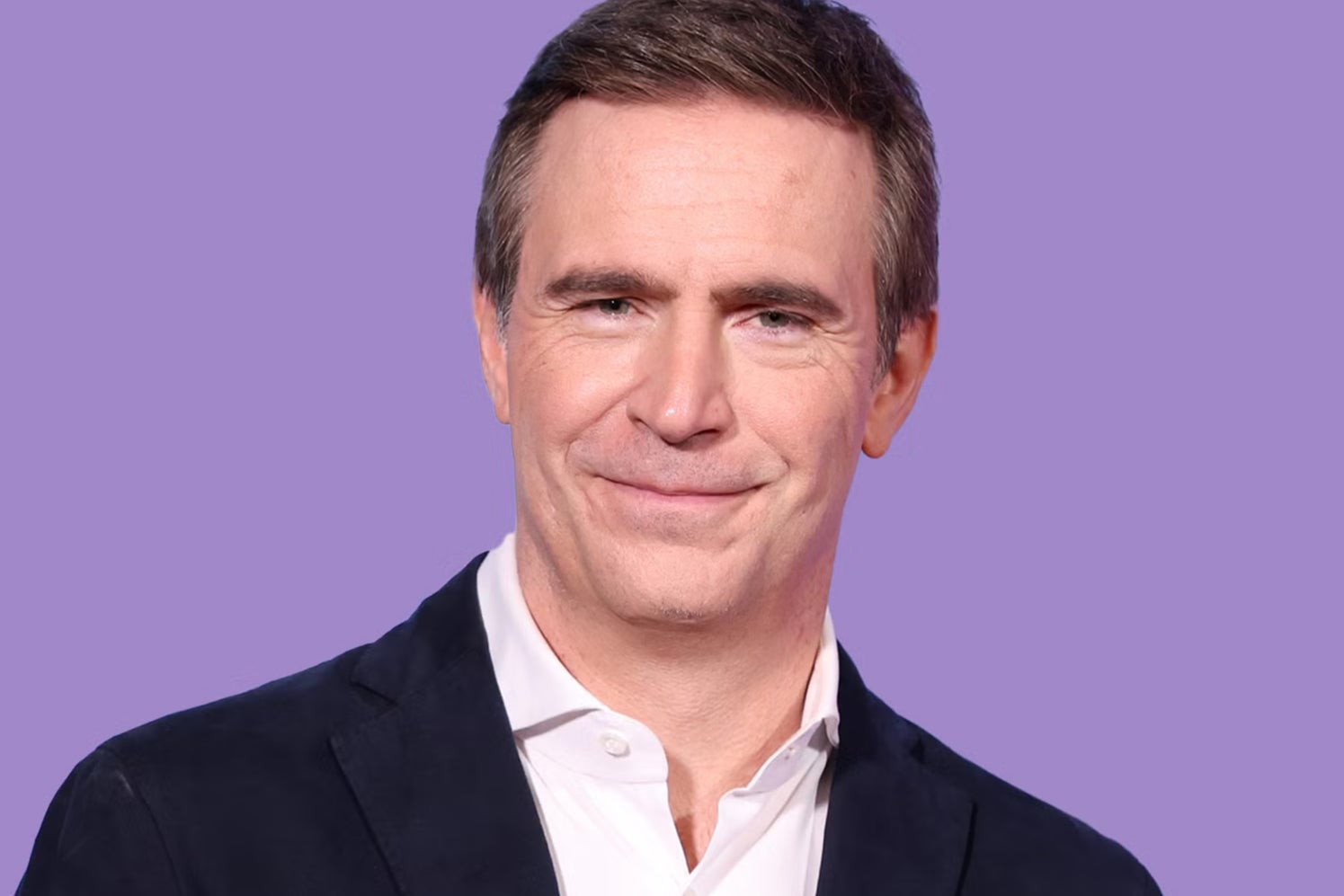
At the end of his twenties, Jack Davenport was a wide-eyed British actor in LA. “I remember the first time I ever shot a scene on an actual Hollywood studio lot,” he tells me. “I finished the day’s filming. I was standing in the car park before I left and I was like, ‘Look around, Jack, this might be the only time you ever do this’.”
It was the Disney lot in Burbank. Davenport was shooting Pirates of the Caribbean, with Johnny Depp and Keira Knightley. He was the latter’s love interest, despite the young Brit asking producers if she could take advantage of being in the presence of the man soon to be voted The Sexiest Man Alive and snog Jack Sparrow instead. That must have stung a bit. “No, not at all, God, no,” says Davenport, now 51. “Don’t forget when we made the first one of those, Keira was 17 years old. I just felt like a seedy older uncle. I was mortified that I was having to... I mean, she’s very much a grown woman now. But she was a kid, and I felt a bit embarrassed to have to even play that stuff.”
Knightley was also, he recalls, “a fully fledged movie star straight out of the gate”. Of course, Davenport was a star in his own right at the time, especially at home, where he had been the posh, sexy, caddish Miles in the young lawyers’ hit This Life, alongside Andrew Lincoln and Daniela Nardini’s Egg and Anna. He’d excelled, too, in the criminally underrated modern vampire series Ultraviolet with a young Idris Elba and he’d been Matt Damon’s lover in Anthony Minghella’s 1999 thriller The Talented Mr Ripley.
And he was wrong about it being the last time. Flick through his credits – which range from high-concept hokum (ABC’s FlashForward) to showbiz drama (NBC’s Smash and Apple TV+’s The Morning Show) – and you can see Davenport has built a comfortable career in the US. So comfortable, in fact, that he and his Scottish wife, Green Wing actor Michelle Gomez, have spent more than a decade living in New York, and their 14-year-old son, Davenport insists, is “totally American”.
Today, though, we’re in London’s West End, at the Donmar Warehouse, to talk about his new play, NHS drama The Human Body. Dressed in a black sweater, grey trousers and white trainers, he’s animated and loquacious; thoughts tumble out of him, spontaneous yet somehow refined. He’s disarmingly self-aware, too, often stopping himself mid-sentence to admit that “actors sounding off about politics kills me”, but then ploughing ahead anyway to give his two cents. All of this is relevant, I assure him.
In The Human Body, he plays a Hollywood star coming back to the small town in Shropshire where he grew up – a role that demonstrates, Davenport notes wryly, “my total lack of range”. Written by Lucy Kirkwood, it is set in 1948, the year when health minister Aneurin Bevan was trying to push through his dream of a National Health Service under the auspices of the Labour government that had won a post-war landslide.
When I’m watching some endless Marvel movie and everything I’m seeing, I understand on a visceral level, is defying the laws of physics, well, emotionally, I’m out. I’m not emotionally engaged on any level whatsoever
It’s part polemic, part Brief Encounter-style romance, with Keeley Hawes dazzling as Shropshire GP and Labour Party councillor Iris Elcock, a proto-new woman juggling her day job with the housework and Westminster ambitions. And in Davenport, Hawes finds the perfect foil, all debonair indifference as George Blythe, the Cary Grant type with whom Elcock strikes up an affair after a chance meeting. Driving the plot, too, is a question as timely now as it was back then: do we really need the NHS?
Shockingly, in a plebiscite in February 1948, 84 per cent of doctors were against the idea. Labour pushed it through. Now, with waiting lists soaring, it’s in crisis. Does Davenport think the NHS is failing? “It’s ageing,” he says. “We are one of the seven richest countries in the world for God’s sake – how can we not find the money? Do we really need more Polaris missiles? How about, you know, an MRI machine or cleaner wards? This is a post-imperial nation, which is now just a small island off the northern coast of France. And to a certain extent, we shot ourselves in the face by voluntarily leaving the only economic union we’re ever going to be invited into, for reasons of some sort of imagined time travel to a past that never existed as far as I can see. Brexit, Trump, same s***. I mean, same impulses, right?”
Davenport catches himself, exhales, then puts the caps lock on. “In 2016, there was still a tiny slither of the electorate who were old enough that they might have been actually shot at by Germans, right? And I’m like, you know what, if that was your experience, maybe you have every right to be xenophobic about the continentals. Anyone else: what are you talking about? What is your misgiving about this thing that has helped undergird a small country’s economic life in a way that cannot be repeated? The self-inflicted wound of Brexit really was, even just economically, so idiotic. Look at the Germans. They are the most invested in the EU project. Why? Because they were handed their arses twice in the space of 25 years in those wars, and then reduced to rubble. And they understand if we’re not in it all together, we’re f***ed.”
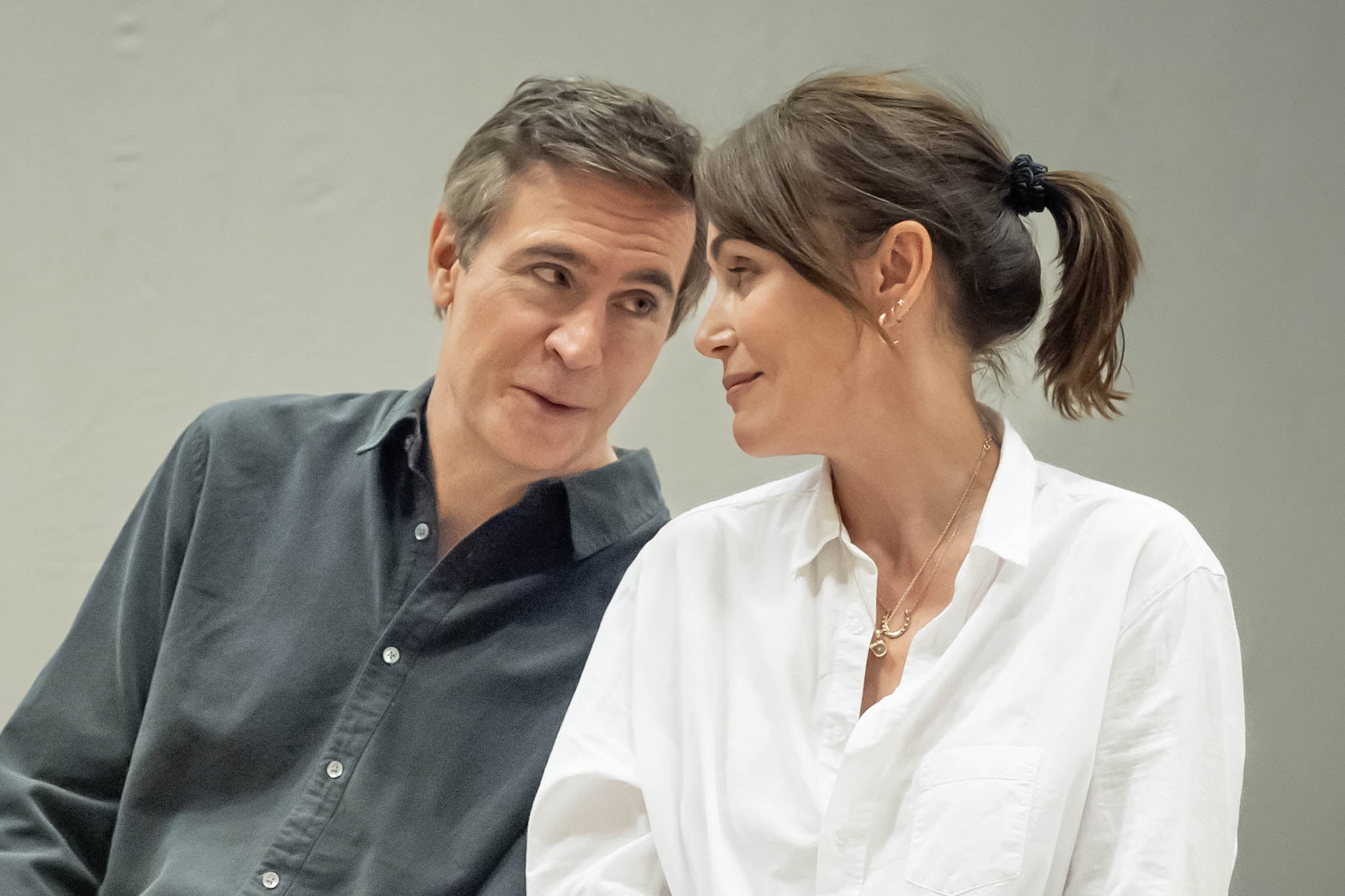
This is typical of Davenport. Asking him a question is like winding up some toy teeth and letting them chatter – brilliantly – across the table until they run out of power. But just when I think I’m going to have to steer conversation back to the play, he goes from Brexit to his character’s political ideology. “George,” he says, “thinks Churchill is a warmonger and a snob who did a page one rewrite of the English character and convinced you all that you weren’t a nation of dull shopkeepers, but righteous heroes with fire in your hearts and iron in your bowels. And didn’t you all lap it up?”
Quite. And what of Elcock’s deceived husband, who, crucially, is opposed to the introduction of an NHS? Kirkwood has said the play is partly about whether a marriage can survive a couple having different political views. Well, can it? It’s not an issue he’s encountered personally, Davenport explains. “I mean, I’m married to a Glaswegian, who’s in showbusiness and, surprise, surprise, not a Tory.” But he notes: “I think political identity has come to take the place of identity for a lot of people… I’d like to hope if two people could claim to love each other, I mean, really, do you have to give a f*** how they vote in an election?”
Davenport blames social media. “It ruined everything, didn’t it? And that poking people do to each other, you know?” A decade ago he told The Daily Telegraph that “celebrities on Twitter should shut up and go away”. Does he stand by that today? “Absolutely. Even more so now,” he says. “Do we just absorb the world through decontextualised chunks of f***ing ephemera that add up to nothing? I really can’t stand it. I abhor it. I’m also aware of sounding like a 50-year-old man, and I understand that. But when people say that’s how the world works now, I’m like, ‘Does it have to, though?’”
Unsurprisingly, he feels the same about TikTok, on which there’s an increasing proclivity among actors to share every detail of their lives. “I really, really hate it,” he says. “There used to be a phrase, which is now ancient Social Media Language: ‘snackable content’. Yeah, go f*** yourself, seriously.”
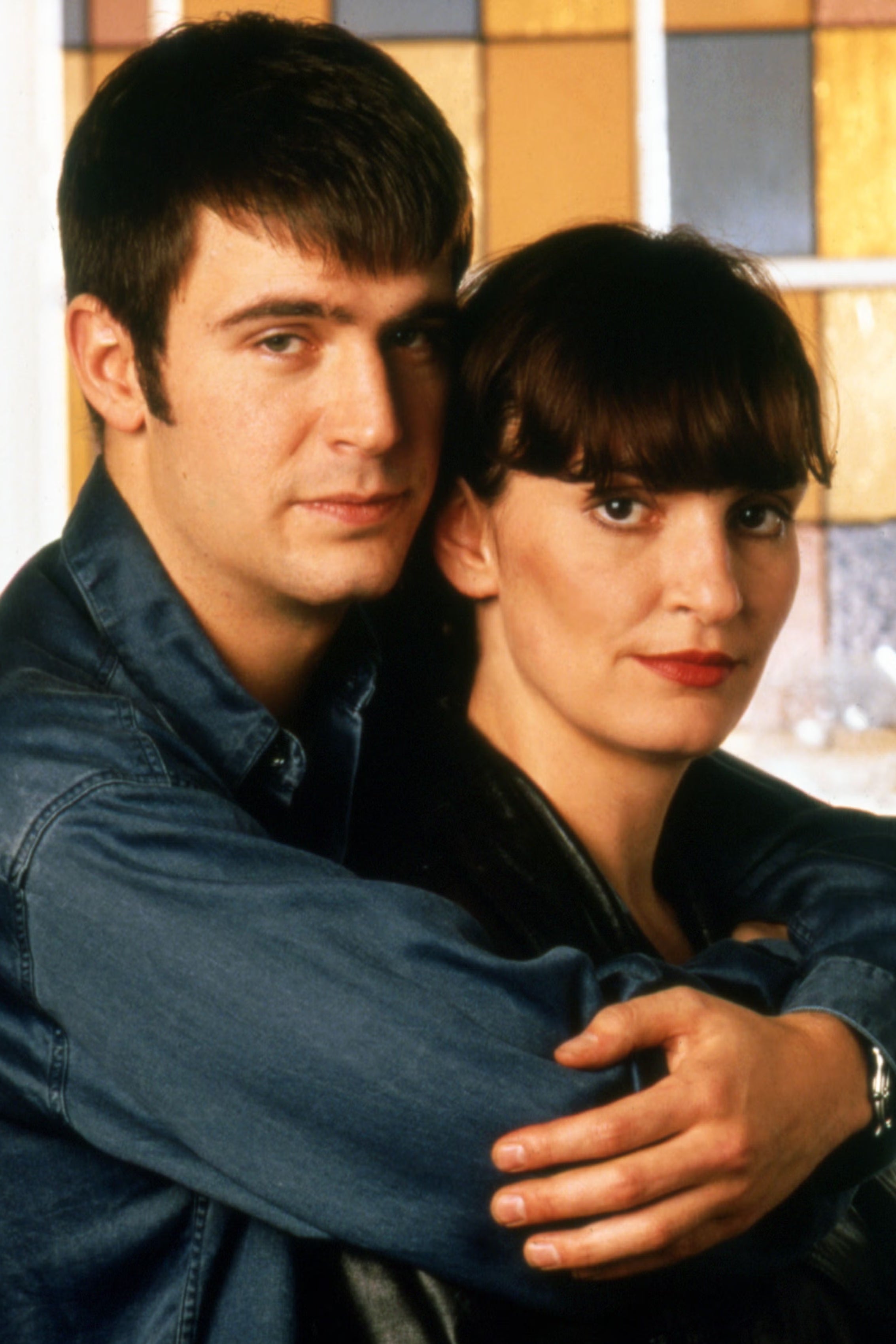
If the words “social media” trigger a Pavlovian response in Davenport, disdain rat-a-tat-tatting out in a fusillade of hilarious emphases, there’s good reason for it. His son Harry has recently joined TikTok, having graduated from Snapchat. He’s so in thrall to it, says Davenport, that he will lie there motionless on the couch for hours watching reels. “It’s not even a narrative,” the actor says. “It’s just one decontextualised titbit!”
But how do you protect him from the more insidious aspects of social media, I wonder? “We’ve tried to titrate the dose,” he says. “I’m forever reading terrifying books and listening to scary podcasts about social media and AI. So much so I read a wonderful book quite recently called The Chaos Machine by Max Fisher. And I sidled up to my son, and I was like, ‘I’m reading this terrifying book about social media’. There’s a pause, and he just went, ‘Another one?’” It’s a balancing act, he says. “You can’t let your child be like the weird Luddite kid who’s just got a colander and a wooden spoon to play with. When we gave him a phone, we were like, ‘We reserve the right to check your phone at any time’. We don’t because it’s not like a police state. But he doesn’t have his phone in his room at night.”
I ask about Andrew Tate, the British-American kickboxer turned self-professed “misogynist” influencer and cigar-smoking, gun-toting poster boy for toxic masculinity. A recent survey suggested that 16 to 29-year-olds are more negative about feminism than men over 60, with Tate’s shiny jewels of sagacity – such as women belong in the home and are a man’s property – having a huge impact on young teenage boys. “My son brought up his name at dinner one night, and I just went off,” says Davenport. “If you prohibit something, it just makes it more appealing, doesn’t it? So I can show me radiating contempt for someone like Andrew Tate, and I’m a relatively articulate person, for two minutes or so, and then just be like, ‘That’s my piece’. There’s only so much you can control.”
Davenport’s own upbringing was pretty idyllic. The privately educated son of actors Maria Aitken and Nigel Davenport, he grew up in Ibiza and had John Hurt and Terry-Thomas as house guests. It was a bit of “an art commune”, he says. “There was a moment in the late Sixties where a lot of actors and writers and painters and creative types bought little, old, beat-up houses there. Our house was 400 years old and it didn’t have any mains water or electricity; everything was pretty basic.” But it was this period that made him want to be an actor. “I became one because growing up around actors... they’re playful people and they’re silly and they don’t patronise you if you’re a child,” he explains. “It was tribal and I wanted to be in that tribe.”
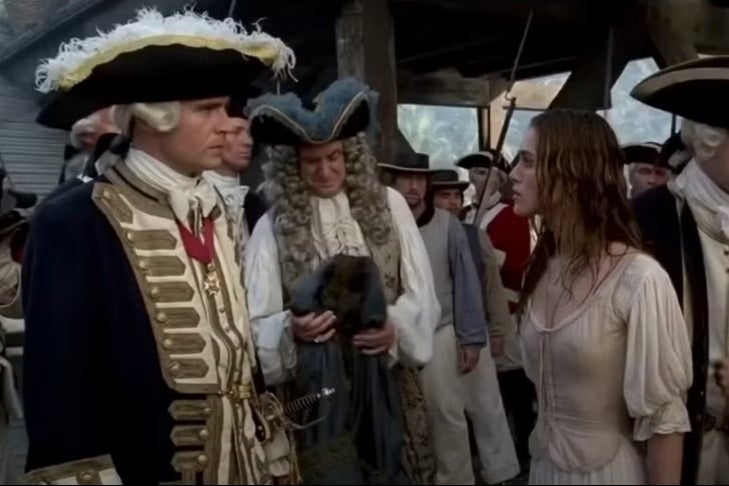
Looking back now, Davenport acknowledges he “had a more clear path... I had access in that I could write a letter to John [Cleese, asking for work on the 1997 film Fierce Creatures], and he might actually read it. That’s not something that everyone gets.” I ask him if he’s read any of the nepo baby discourse. “If I was 30 years younger,” he says. “I’m sure that I’d be called one.” He notes how Jamie Lee Curtis, the daughter of Fifties heart-throb Tony Curtis and Psycho star Janet Leigh, has started calling herself a nepo baby. But Davenport says there’s been a flip side to this for him. For a long time, he explains, his imposter syndrome was “overwhelming”.
“Anyone at any point would be perfectly justified in tapping me on the shoulder and be like, ‘Oh, yeah, it was easy for you’. But the truth is,” he says, “I’ve been doing this for 32 years now, and while I would never suggest in any way that I’m God’s gift to anything, I must have been doing something vaguely in the ballpark all these years, just to keep somehow remaining at the dance. But it took a long time for me to not feel a bit of a fraud.”
While we’re on hot-button issues, I ask him about Ralph Fiennes’s recent comments that trigger warnings for theatre audiences should be scrapped because people should be “shocked and disturbed” by what they see. Davenport agrees with him. “The purpose of art is to teach us about ourselves,” he says. “Human beings are capable of extraordinary feats of creativity and unbelievable cruelty. And it strikes me that it’s a much safer way, ironically, of experiencing psychopathy, or cruelty, if someone’s just pretending it in front of you. I mean, what would William Shakespeare make of a trigger warning?”
And what about skyrocketing West End ticket prices, which last November actor Dominic West called “crazy”? “Well, I agree,” says Davenport. “The Donmar is pretty good because they’re very conscientious about not pricing people out, for which I am very grateful because you don’t just want to do plays for a well-heeled elderly audience. What’s the point of that? I mean, I read the other day that there are people out there charging 300 quid a ticket...”
Meanwhile, a crucible of new voices is at risk. Kirkwood – whom Davenport calls “ludicrously accomplished” and “a nimble adjuster of her work” – is from a generation of gifted writers who came from the Royal Court, along with Lucy Prebble, Jez Butterworth and Polly Stenham. It was recently reported that the theatre’s literary department is at risk of redundancy, while across the sector artistic directors are quitting in droves. Is the theatre scene in crisis? “It’s always a bit in crisis,” he says. “It is an ancient technology.” Davenport talks about the way that right and centre-right governments tend to behave as though societies don’t need culture in any form – “first on the chopping block is invariably arts” – and how Britain since Shakespeare’s time has always punched above its weight in the arena. “It’s one of the country’s greatest exports – it seems a terrible own goal to not support it.”
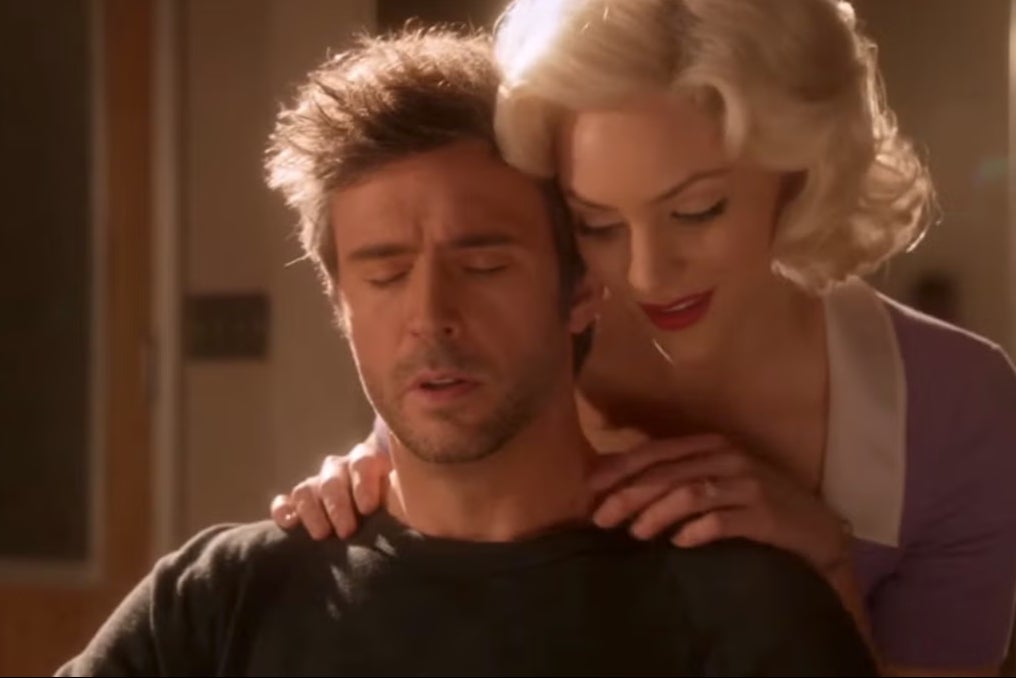
Theatre brings us back to the human experience, he believes, and “when I’m watching some endless Marvel movie, because I’ve got a young son, and everything I’m seeing, I understand on a visceral level, is defying the laws of physics, well, emotionally, I’m out. I’m like, well, it’s f***ing impossible. It’s sort of a spectacle. But I’m not emotionally engaged on any level whatsoever.”
There’s a bare handful of CGI movies that he has enjoyed, he says, Gravity and Rise of the Planet of the Apes among them. “In some instances, it’s absolutely magic.” But as someone who loves cinema, and the joy of going to a three o’clock matinee, he insists that theatre still offers something unique. “It is an entirely different, collective emotional experience, when you have to turn up on time, sit down, shut up and watch real bodies in real space, try to tell you something that might move you or make you laugh. And since people were doing f***ing shadow puppets on the cave wall, we as humans need that s***. So for there to be a sort of rather contemptuous political impulse to be like, ‘Who needs that s***?’ I would argue we all do.”
‘The Human Body’ is showing at the Donmar Warehouse, Covent Garden, until 13 April
Join our commenting forum
Join thought-provoking conversations, follow other Independent readers and see their replies
Comments
Bookmark popover
Removed from bookmarks